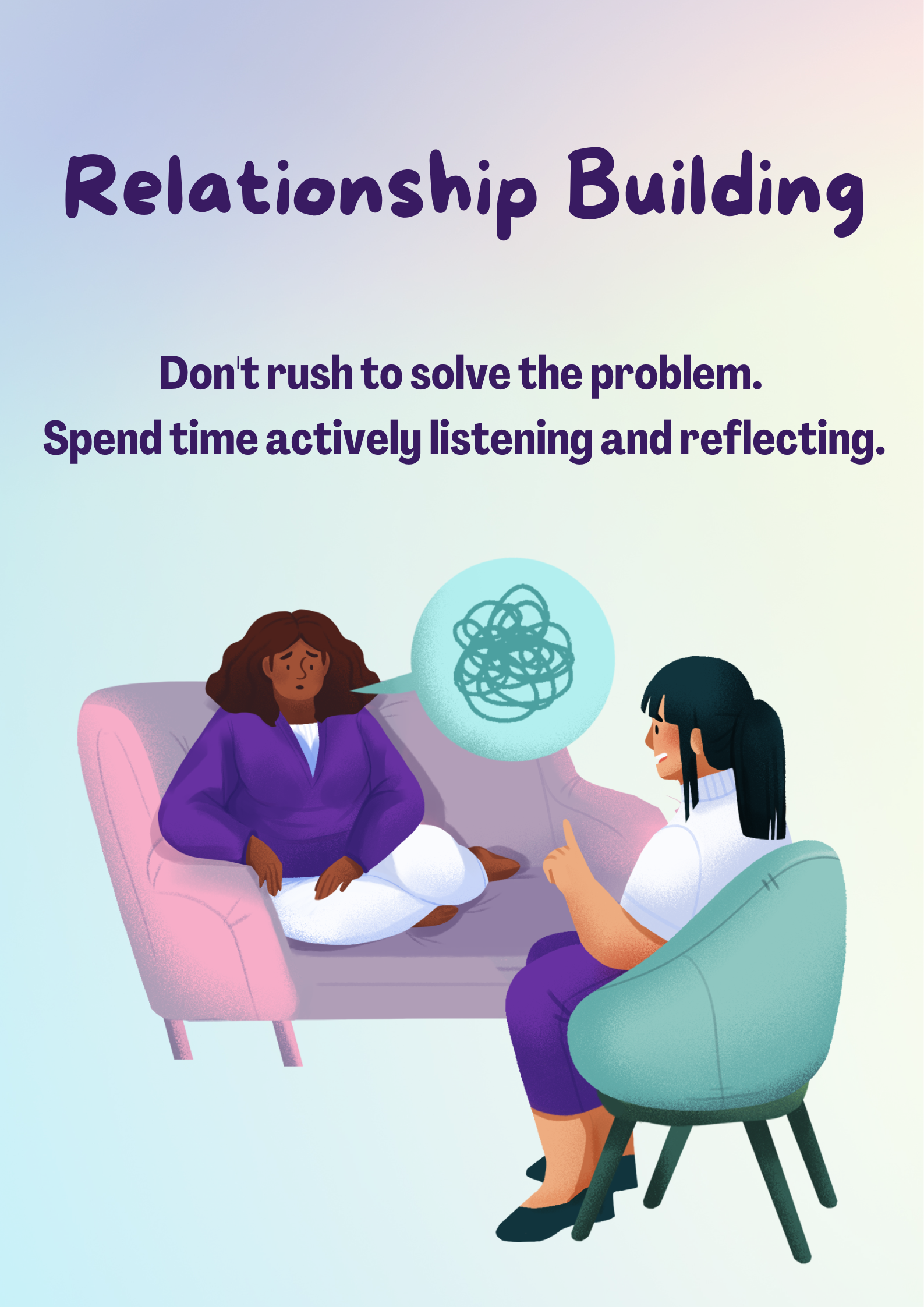 Self-Awareness Building
Self-Awareness Building
This chapter allows us to reflect internally when we experience conflict. Take a moment to consider these factors:
- Which physiological indicators do you experience during conflict?
- Which psychological indicators do you experience during conflict?
- What experiences trigger your brain to go into survival mode?
- Which strategies can you use to keep your brain under control in conflict?
There is no one size fits all approach to keeping yourself calm in a high stress situation.
Other Awareness Building
This chapter also reflects upon what others experience during conflict and how we can help them deal with stressful situations.
The most important element of helping someone’s brain reengage is to Actively Listen and reflect back what you see them experiencing. Don’t forget to use your EARS:
- E: Empathy
- A: Attention
- R: Reflection
- S: Summary
You can’t start solving a problem when you, or the other person is disengaged. Don’t rush to solve the problem. Rather spend time actively listening and reflecting.
Finding your own style to help someone deescalate a defensive response takes time, intention, practice, and patience. Remember to extend respect and empathy during the de-escalation process. We are all human and sometimes we react to situations in less than productive ways.
Relationship Building
One thing you can do to help build relationships, is to slow down conversations around conflict and problem solving. When our brains are defensive, we are not capable of solving problems. We get stuck, sometimes on a short sighted or unrealistic solution.
Taking the time to really help your own, and the other person, reengage. Show you care about the relationship, and want to spend time working towards a productive and lasting relationship and solution.

